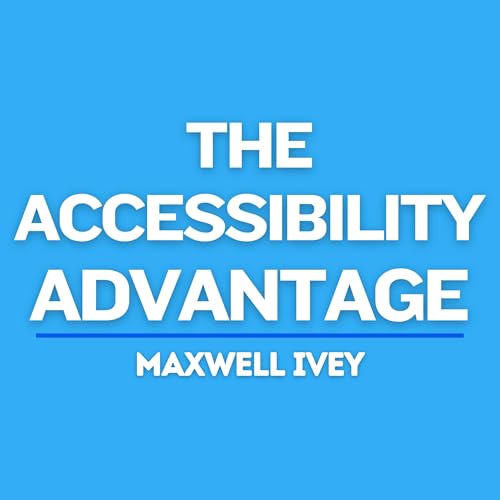Hello again, Since it's the weekend for most of you reading this post, I hope you have plans to spend relaxed enjoyable time with your friends, family, and pets. This time on The Accessibility Advantage i'm blessed to speak with Douglas Katz. He is a West Point graduate and disabled Army veteran trying to improve the lives of people with disabilities by helping design and bring to market better tools. Plus he sees the NULU Knife as just a first step. He has started the Red Leg Innovation group to help other inventors refine their ideas, establish a production process, find funding, manage marketing, and handle all the many aspects of running a business when you have a disability. What We Talked About Douglas dropped a lot of great nuggets on us during our talk. First, was the idea of the ability or disability curve depending on your viewpoint. At some point along our lives we will be considered disabled for a given task based on our age, mental acuity, physical abilities, etc. And because of this we need to understand that at some point in our lives we will not be able to do the things we want to do or have always been able to do. Then he talked about how we have to design things more based on the actual tasks they will need to perform. Focusing strictly on the tasks a knife needs to perform in a kitchen he came up with the Nulu Knife. He also explained how designing products for people with disabilities is similar to what happens in the military, space exploration, and professional auto racing. Advancements made in those fields often turn up in our lives in a consumer-based option. Because quite often products designed for people with disabilities will have far-reaching uses for those who aren't currently living with a disabling condition. He explained how this has happened to a certain extend with the knife and how much more of an impact on the world his simple invention could have. And finally, he talked about inter-dependence and how his entrepreneurial journey only started to take off after he decided to ask for and accept help. Show Notes Streamyard still hasn't fixed the count-down clock or go live announcement; so I have to depend on my guests to tell me when I"m live. Next, yes I still sing on the podcast. The song is called The Accessibility Advantage, and it's short. And none of the live content has been edited as part of this post. It is still live like a 50s TV show. On With The Show About Douglas Douglas Katz is a West Point graduate, disabled Army veteran, and lifelong athlete turned entrepreneur, whose career journey has been defined by resilience, innovation, and a commitment to empowering independence through better design. After nine years of military service and decades of impact from football, rugby, martial arts, and an active lifestyle, Douglas began to experience the cumulative effects of upper extremity impairments. Tasks as simple as preparing a meal became painful and frustrating—until he decided to solve the problem himself. That solution became the foundation for NULU, an adaptive kitchen knife company he founded under his innovation platform, Redleg Innovation. Guided by the Ability Curve Model, Douglas champions the philosophy that adaptive design—products that adapt to the user, rather than forcing the user to adapt—benefits everyone, not just those with defined physical challenges. His work begins in the “need market,” serving people with the most acute requirements, and expands into the “help market,” where broader audiences value comfort, control, and usability. The NULU knife, inspired by circular cutting geometry found in traditional tools like the Inuit ulu but refined with patent-pending improvements, embodies that philosophy. By aligning the cutting edge and handle in a way that maximizes force transfer and minimizes joint strain, NULU restores capability and confidence to users with arthritis, reduced grip strength, neurological conditions, and fatigue—while also delivering better performance for professional chefs, home cooks, and outdoor enthusiasts. His leadership extends beyond a single product. Through Redleg Innovation, he applies an adaptive-assistive-adjacent approach—using each product cycle to inform the next, creating a sustainable loop of validation, refinement, and market expansion. This method ensures that adaptive tools maintain their accessibility for those who need them most while gaining broader appeal and commercial viability. He also embraces creative market engagement, from exploring the children’s space through Gnu Lou and the Adapti-Crew—a superhero universe that reframes limitations as strengths—to building partnerships with organizations supporting veterans, seniors, and people with disabilities. He sees storytelling and brand experience as powerful ways to normalize adaptive tools in everyday life and foster pride in their use. His entrepreneurial philosophy is informed by both his military background—where ...
続きを読む
一部表示
 44 分
44 分 46 分
46 分 32 分
32 分 2025/10/049 分
2025/10/049 分 29 分
29 分 45 分
45 分 1 時間 6 分
1 時間 6 分 15 分
15 分
